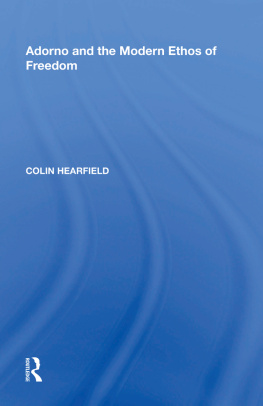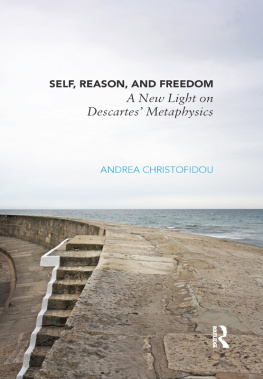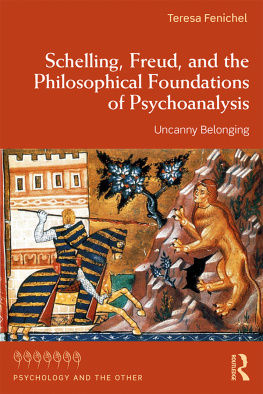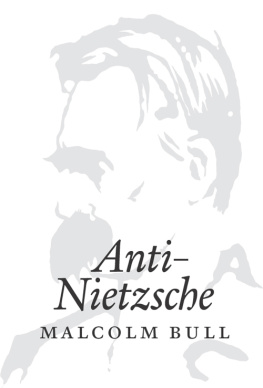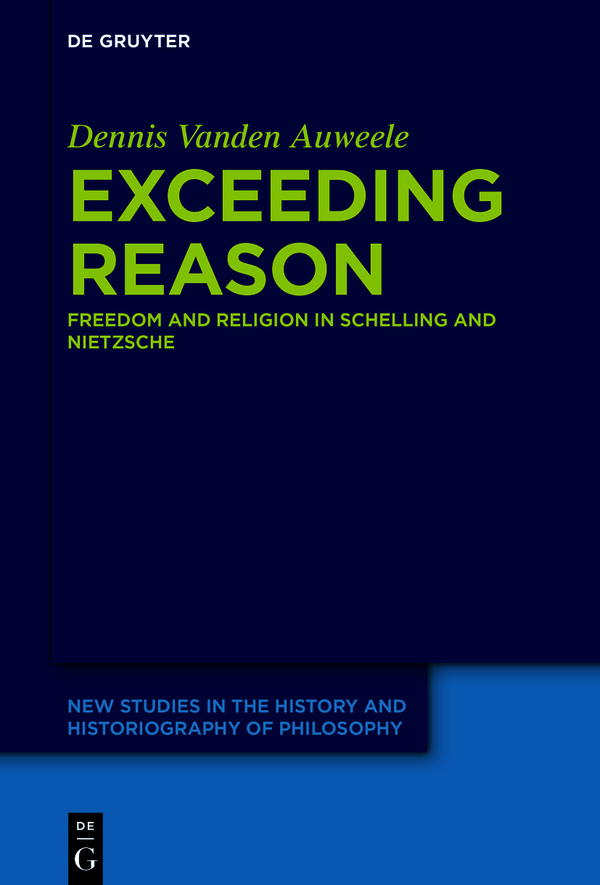New Studies in the History and Historiography of Philosophy
Edited by
Gerald Hartung
Sebastian Luft
Volume
ISBN 9783110617757
e-ISBN (PDF) 9783110618112
e-ISBN (EPUB) 9783110618457
Bibliographic information published by the Deutsche Nationalbibliothek
The Deutsche Nationalbibliothek lists this publication in the Deutsche Nationalbibliografie; detailed bibliographic data are available on the Internet at http://dnb.dnb.de.
2020 Walter de Gruyter GmbH, Berlin/Boston
Knowing that Nature never did betray
The heart that loved her; 'tis her privilege,
Through all the years of this our life, to lead
From joy to joy: for she can so inform
The mind that is within us, so impress
With quietness and beauty, and so feed
With lofty thoughts, that neither evil tongues,
Rash judgments, nor the sneers of selfish men,
Nor greetings where no kindness is, nor all
The dreary intercourse of daily life,
Shall e'er prevail against us, or disturb
Our cheerful faith, that all which we behold
Is full of blessings
Lines Composed a Few Miles Above Tintern Abbey (1798)
William Wordsworth
To Joleen
who is joyful, kind
and full of blessings
Acknowledgments
Schelling and Nietzsche make their readers work for it. Extensive and sustained attention to their work allows one to listen in on an edifying monologue. This can be addicting: one more page, one more thought! Sometimes there is more truth in one page, even one line, of Schelling or Nietzsche than in some of the voluminous books of their contemporaries. After I felt I had come to a good understanding of their thought, I needed to turn those monologues into a dialogue. This was my greatest challenge yet, and this book is my very attempting of that: a dialogue on the topics of freedom, reason and religion between Schelling and Nietzsche. I hope to have done right by both Fritzs.
That undertaking proved ambitious, perhaps even arrogant. This was especially so since I was also looking for a new way of doing metaphysics. I felt blessed by meetings with philosophers that suffered my arrogance and did not mind entertaining the possibility for a congenial encounter between Schelling and Nietzsche. I would be remiss if I did not mention my conversations with William Desmond, Henning Tegtmeyer, Agata Bielik-Robson, Jason Wirth, Jonathan Head and Yu Xia. Some of these chapters were presented at various conferences where they met with sporty opposition. I want to thank in particular the organizers and attendees of various conferences organized by the Friedrich Nietzsche Society, the UK Nietzsche Society and the Nietzsche Gesellschaft. Ive had some of the most enlightening discussions on German idealism at the conference The Philosophy of Negation: The Concept of the Negative in Classical German Philosophy, organized by Gregory Moss. I am particularly grateful to Agata Bielik-Robson for hosting and engaging me at the University of Nottingham, where I managed to push this book forward like never before.
Reading such existentially-engaging authors has its inherent dangers. One loses oneself so very easily. Schelling and Nietzsche kept battling it out in my head long after I put down their books. The gentle grace and loving patience of dear Joleen unfailingly brought me back. I sing a song in her honor. Lets talk that sun into setting / Just need the sound of your voice / Need that calming and the comfort / Something to drown out the noise (Defeater, I dont mind).
Abbreviations and Translation
See bibliography for translations and editions used if no translation is available, I provide my own.
Works by Schelling cited with pagination of Smmtliche Werke with the exception of Original Version of the Philosophy of Revelation and the Paulus Nachschrift of the Philosophy of Revelation (which follows the editions page numbers).
STI
System of Transcendental Idealism (1800)
PR
Philosophy and Religion (1804)
F
Philosophical Inquiries into the Nature of Human Freedom (1809)
SV
Stuttgart Private Lectures (1810)
W1,2,3
The Ages of the World (draft of respectively 1811, 1813 and 1815)
GNP
On the History of Modern Philosophy (Munich Lectures of 1827) I add between [] the page numbers of the translation here as well.
SW
The System of the Ages of the World (Munich Lectures of 1827/28)
UO
Original Version [Urfassung] of the Philosophy of Revelation (Munich Lectures of 1831/32).
GPP
The Grounding of Positive Philosophy (Berlin Lectures of 1842/43)
HKM
Historical-Critical Introduction to the Philosophy of Mythology (Berlin Lectures of 1842)
O
Philosophy of Revelation (Berlin Lectures of 1841/42, Paulus Nachschrift)
Works by Nietzsche cited with number of aphorism and, if non-consecutive, section title.
GT
The Birth of Tragedy (1872/1886)
UB
Untimely Meditations (1876)
MAM
Human, All Too Human (1888)
M
Daybreak (1881)
FW
The Gay Science (1882)
Z
Thus Spoke Zarathustra (1883)
JGB
Beyond Good and Evil (1886)
GM
On the Genealogy of Morals (1887)
A
The Antichrist (1888)
GD
Twilight of the Idols (1888)
EH
Ecce Homo (1888)
Introduction
One of the main tasks of philosophy has been to come up with a systematic representation of reality that stands tall in the face of that reality. This involves coming to a conceptual representation of reality that accounts for all of the vicissitudes of life, for all the mess that is (human) nature, but also for some of the intuitive closeness as well as the staggering displacement of what is involved in knowing ourselves and the world. Philosophy should account for the highest heaven and the deepest abyss. For some time now, it has been reckoned that traditional philosophy has failed to live up to that task mainly because the overly rationalist and systematic impulses of philosophy from Plato and Aristotle to Kant and Hegel was forced to exclude from their philosophical vision those aspects that unsettle, perhaps even collapse upon itself, the systematic pretensions of philosophical thought. In response, postmodern philosophy has taken it upon itself to reformulate the central task of the practice of philosophy, which now becomes the intellectual duty to arouse hesitation, even equivocity, when it is claimed that things can be understood in a singular, philosophical vision. The abyss came back, so to speak, with a vengeance. The purpose of philosophy in the Continental tradition seems now more focused on thinking difference rather than systematic unity.
Philosophical reflection on reason, freedom and religion is often at the centre of this postmodern reservation, at least to those thinkers who are not downright atheist. Is reason capable of comprehensively understanding freedom and religion? Or can reason, at best, understand their incomprehensibility? Freedom and religion were traditionally cloaked with a mantle of transcendence, their origin and purpose divine rather than worldly, and their miscomprehension throughout the modern tradition is mirrored in the miscomprehension of God. Those postmodern thinkers keen on deconstructing traditional philosophy point out that the tradition has done a poor task of thinking about God. Modern sallies into religious territories were thought to be overly univocalizing and levelling, more of a raiding party than a diplomatic mission, and they have turned God into a being amongst beings that could be understood through immanent rationality. Heidegger would say that this approach misses the constitutive difference between immanent forms of rational thought and the poetry of transcendence. There is some truth to this: there has been a long and lamentable tradition of turning God as transcendence into to use a term of William flattening of discourse more


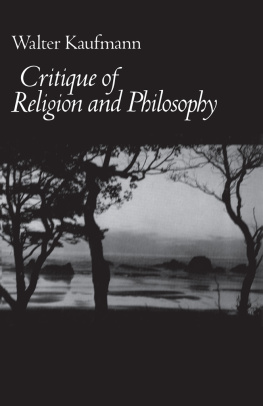

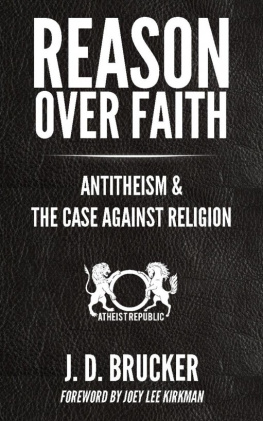
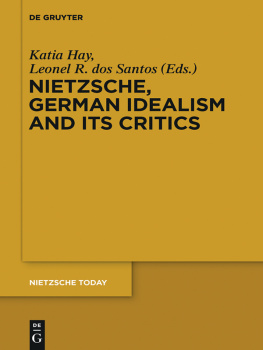
![Blackford - Freedom of religion [and] the secular state](/uploads/posts/book/167779/thumbs/blackford-freedom-of-religion-and-the-secular.jpg)
